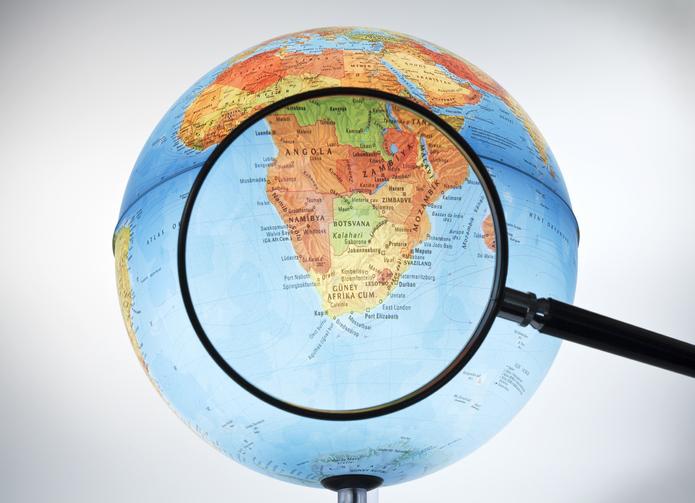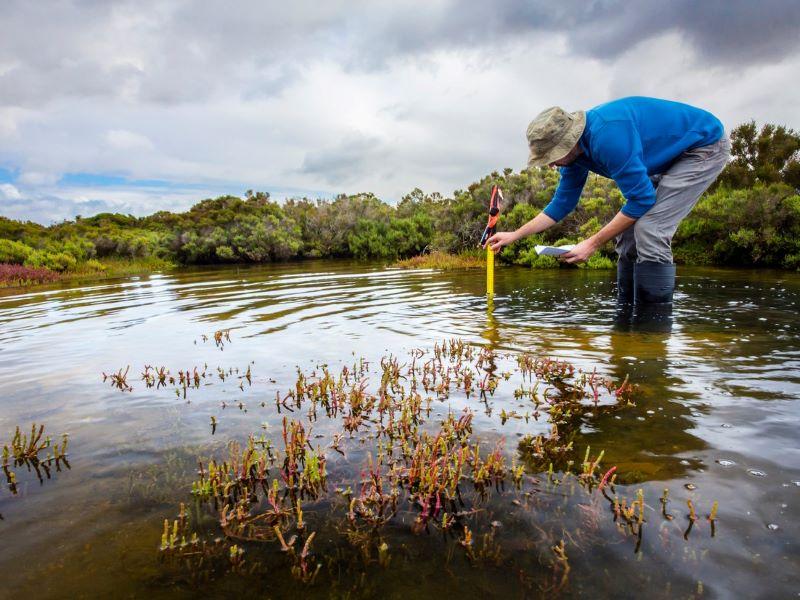
Why learning to listen will help you avoid ‘helicopter research’ and make you a better science communicator

You may also like
“Helicopter research” describes a troubling practice where researchers from wealthy nations collect samples or data from lower-income countries with little or no involvement from local scientists or local communities. It remains a lingering problem in some fields of science, including my own. For a long time, doing the research was so all-consuming that I never stopped to consider that how I went about it was problematic. I was a geoscientist, after all; I dealt with sand and rocks, not with people.
It took a fateful year of failed fieldwork in the Kalahari – my drill kit didn’t turn up; it rained in the dry season; and my vehicle broke down more often than an old jalopy – to learn of my own blinding ignorance. Deprived, that year, of being out in the bush digging up mud, I spent a great deal of time in the backyards of village mechanics, sourcing drill parts from a local salt mine and engaging in beer-fuelled debates with strangers in local bars. While I wouldn’t recommend those activities as a legitimate strategy for public engagement, I learned that my research genuinely mattered to local people. They wanted to know about it; they wanted to be part of it; and most of all they wanted to tell me about it.
- Tips for involving young people in research in meaningful ways
- Helping doctoral students build international connections
- Discover the nine competencies required to become a researcher
I can attribute my own ignorance about research engagement to two pervasive shortfalls within the culture of geoscience research: i) our failure as scientists to recognise that knowledge doesn’t always adhere to the conventional rulebook of colonial science; and ii) our failure as academics to make time to stop and listen, an issue at the root of the relationship between science and society more generally.
Well-intentioned, we turn up to sessions on how to do “media engagement” and “science communication”. We start a blog; we give the odd talk at a school. We try to get our findings “out there”. But however well we tell our science stories, the truth is that engaging society requires more than just presenting compelling evidence. I was a long way into my career before I finally understood that having a positive impact in the world was much more about listening than talking. Nowhere is that truer than when the places we work as researchers are, culturally or economically, very different from our own.
Field locations characterised by resource poverty seem particularly vulnerable to resource-rich researchers viewing local scientists and local communities as somehow “deficient”, misguided or irrational. The sense of “scientific“ superiority can lead to interactions that fail to communicate respect or foster trust or, perhaps worse in my case, a failure to interact at all. A 2016 study, in which nearly 400 scientists were asked about science communication and public engagement, respondents ranked “defending science” and “informing the public about science” as their highest priorities. “Building trust”, the central tenet of the communication world, was one of the least valued priorities among respondent scientists. And yet, in the long run, trust is the foundation of any good relationship. The relationship between science and society is no exception.
But how do you build trust? How do you build meaningful relationships between the science you dedicate your life to and the societies you work in? And how do you do that successfully in research when the world that you work in is very different from your own? Here is what I have learned the hard way:
How to build trust and avoid helicopter research:
- Engage at the beginning. In an impact-oriented funding world, all of us sit down to write research grants posing ourselves the questions: what will this change? How will this make an impact and to whom? Find those people, build connections with them, have conversations with them, listen to them. Do this right from the outset, not after the grant has been written or awarded. This is the bit that can be tricky without funding; but remember, local collaborators are likely to be much better tapped into local society than you are. A conversation costs nothing.
- Create equal partnerships. Don’t contact local collaborators asking them if they would like to be involved in your planned research. Instead, begin a conversation around what they see as research priorities within the region where you’re working. Be open-minded, listen to them and co-produce the research grant application to best meet multiple agendas within the remit of the funder. If you get this bit right, it will enable local collaborators to lead on some aspects of the research. Research agendas and projects should be a win-win, with all partners meaningfully benefiting.
- Share your data. Do that as soon as you have something to share, not when you’ve finalised your thoughts on it or when you write the paper about it. Be inclusive at all stages of the research. Listen to the feedback.
- Recognise contributions to the research with co-authorship. Knowledge and expertise come in many forms and may shape the research at many levels. The local knowledge that contributes to research design and logistics can be just as essential to a project’s success as the knowledge of laboratory processes that contributed to data analysis.
- Create something that outlives the research. Build in sustainability to the research so that long after the paper has been published and is old news at scientific conferences, something tangible is left behind, something that reaches beyond the science. Ask local collaborators and communities what they want that thing to be. It could be practical skill sets or qualifications for students or community members; it could be local networks of communities or researchers; or it could be through changing policies or finding ways to create local economic benefits.
For my part, the surprising answer I found when I bothered to ask the communities what they wanted from our research was pride. They wanted to be proud of their landscape; they wanted to be part of the process of understanding its history; they wanted the knowledge that our research generated to be as much theirs as it was ours. We didn’t have much money to throw at the issue at that time, but we put together public information boards and put them up where the communities thought they would have the most impact. It was a simple gesture, but the act of handing over a physical representation of that knowledge ran to more meaningful depths. It was a gesture that said: we recognise that you, not us, are the guardians of this landscape, of its history, of its future, of its story.
The bottom line is that when we invite communities and collaborators into our work in a transparent and inclusive way, when we truly listen to them, we create a team with a common goal and a common bond. Over time, the lasting effect of that can be just as impactful as the research findings themselves.
Sallie Burrough is a research associate in the School of Geography and the Environment at the University of Oxford.
If you would like advice and insight from academics and university staff delivered direct to your inbox each week, sign up for the Campus newsletter.


